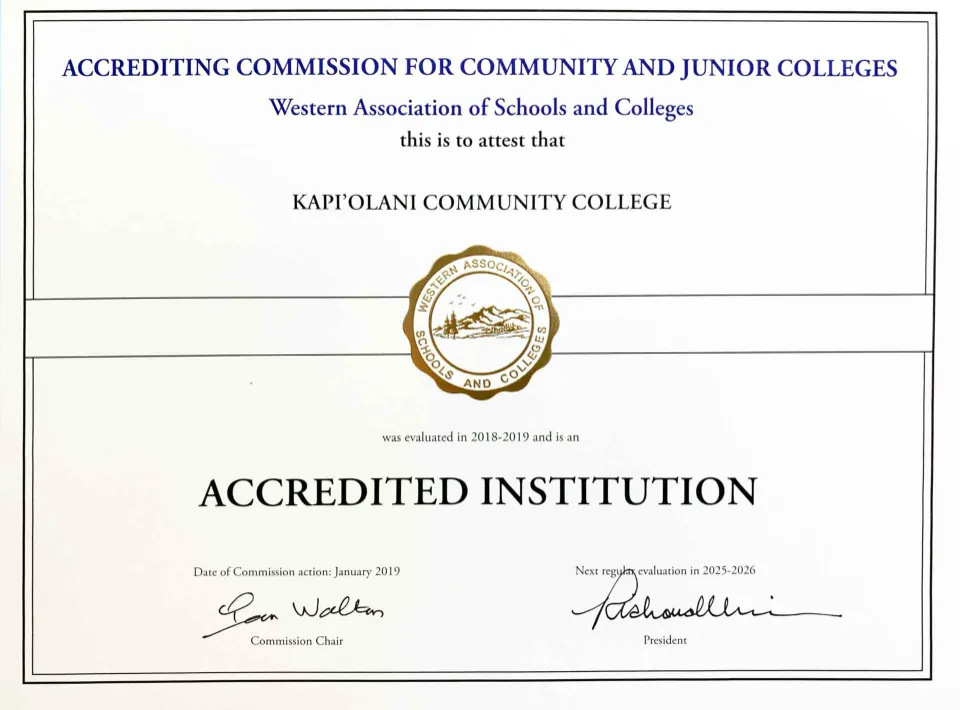
Are Community Colleges Accredited? Things to Know
Learn more about community colleges’ accreditation procedures and why they’re so crucial by reading on.
Community colleges are an essential part of the American higher education system, providing affordable and accessible education to millions of students each year. If a student wants their degree to be respected and valued by employers, they should enroll in an accredited university. Accreditation is important. Yes, community colleges are accredited by recognized accrediting bodies.
Please read on for more information.
Are Community Colleges Accredited?
Yes, all reputable community colleges in the US have accreditation. Students might not be aware of the importance of accreditation when choosing a university or college. Academic quality is guaranteed by accreditation.
The choice of a student to enroll in an accredited institution may affect their eligibility for federal financial aid or their ability to transfer credits to another institution. Students should confirm the accreditation of their potential school.
How Do Colleges Get Accreditation?
Governmental and non-governmental organizations both perform accreditation. Through a rigorous evaluation process, accreditation agencies grant university, college, and academic program accreditation.
By receiving accreditation, a school, program, or group of graduates can prove their reliability to the wider educational community.

Approved accrediting organizations for colleges and universities are closely monitored by the Department of Education (ED) and the Council for Higher Education Accreditation. They guarantee that the public can trust each accrediting organization.
Why is Accreditation Important?
For many reasons, including financial aid and even the job you will get after graduation, accreditation is crucial when selecting a college. As a result, accreditation is a crucial consideration in your decision about which college to attend.
If the institution you attend is not accredited, you will face the following major disadvantages:
Inability to Apply for Government Financial Aid
Participation in federal Title IV or state financial aid programs is a requirement for accreditation. If your college is not accredited by a nationally recognized accredited agency, you will not be eligible for any government-sponsored financial aid.
Given that government financial aid and student assistance programs account for a sizable portion of the cost of tuition at any community college, selecting a non-accredited institution automatically entails forgoing a sizable amount of financial aid.
Inability to Transfer Credits
If you transfer to another school, your credits from a non-accredited college won’t transfer correctly. Only institutions with national accrediting can transfer course credits. Nearly every school accepts credits from institutions with regional accreditation.
Always keep in mind that academic departments or programs with specialized accreditation frequently only accept transfer credit from institutions that have received accreditation from the same specialized accrediting organization.

Disadvantages in the Job Market
Many employers will review your educational history, particularly if you are just beginning your professional career. It might not look well on your application if you received your education from a non-accredited institution rather than an accredited college.
Because the job market is becoming more competitive, you want to make sure that your application stands out during the hiring process; a degree that isn’t accredited might prevent you from accomplishing that.
Unmudl has a number of short certificate programs from accredited community colleges that are perfect for you if you’re looking for a quick way to land a job.
Employer Tuition Assistance Becomes Ineligible
The vast majority of employers that provide tuition assistance won’t be willing to pay back your tuition from an unaccredited institution because they won’t want to invest in employee development from a place that can’t promise a high-quality education.
Graduate School Prerequisites Issue
If you have an associate’s degree from a community college and want to go to graduate school or transfer to a 4-year program, you must first finish your undergraduate studies at an accredited university.
Most graduate programs will not accept your classes, credits, or degree as a requirement if you do not have accreditation.
What Exactly is Accreditation?

Colleges, universities, and academic programs can prove their worth through the voluntary accreditation process. Regional, national, and programmatic accreditation are the three categories that exist in the United States.
A regional or national level of accreditation is available for colleges and universities. While regional accreditation is more common in public and nonprofit colleges, national accreditation is more common in trade schools and religious institutions.
Programmatic accreditation is the process of accrediting academic departments or programs in specialized fields like business, education, or nursing.
Who Should Consider Community Colleges?
Community college isn’t on everyone’s academic radar, but it can be a great option for all kinds of students. With students from all ages, ethnicities, and socioeconomic backgrounds, community college student bodies are among the most diverse in all of higher education.
Check out this nationwide statistical breakdown of community college student demographics:
First-year Students
They are high school graduates who have not yet obtained college credit.
- Lower tuition rates help you explore a range of subjects to find the one that interests you most, either one at a time or in an interdisciplinary major
- Wide-ranging degree catalogs give you the option for career training as well as entry-level academic study
- Smaller schools can let you get used to studying at the college level without the next-level social distractions of a university campus
Transfer Students

Who they are: Students who have earned some college credits and are switching institutions in order to complete their degrees or obtain additional training.
- Many community colleges participate in agreements with other local schools and universities that can make transferring less complicated
- Transfer advisers are common at two-year schools, so you may be able to get extra transfer help if you need it
- Universities don’t typically offer vocational programs, making it more likely that career training credits will have transfer value
Related:
- Do Community College Credits Transfer to a University?
- How to Transfer from Community College to University?
- Is It Better to Go to Community College First, Then Transfer?
Working Adults
Adults looking to further their education in their field of work or returning to school to prepare for a new career.
- Continuing education material is often offered online at community colleges, giving busy adults the schedule flexibility they often need
- Affordable programs allow students who can’t get federal aid — such as those who already hold bachelor’s degrees — to afford new career training
- Community colleges tend to offer job placement services and other career-related perks for graduates
CTE Students
Students who want to finish a program at a vocational or trade school and go into the workforce with a specific set of job skills.
- Associate degree programs can fully train you for your new career while leaving your academic options open
- Some community colleges feature campus facilities, regional centers, or entire satellite locations built to serve specific career programs
- Cost savings mean that you’re more likely to land a job that gives you a good ratio of income to student debt
Conclusion: Are Community Colleges Accredited?
All good community colleges are accredited in the United States. Students might not be aware of the importance of accreditation when choosing a university or college. Excellence in education is ensured by accreditation.
The accreditation of a school is among the most crucial factors to take into account as a current or prospective student. This may affect your future employment opportunities in addition to being crucial for credit transfers.
FAQs
Are Community Colleges the Same as Universities?
The main difference between a community college and a university is that most degrees at a community college only take two years to complete, while degrees at a four-year university take four years to complete.
What Makes a College Not Accredited?
Schools that are not accredited are held to few or no standards or regulations. Not all schools that apply for regional or national accreditation do so because they meet the requirements. Due to their youth or the fact that they may be applying for accreditation, some schools lack accreditation.
How Do You Tell a College is Accredited?
To determine the accreditation status of any college or university, the Commission uses a publication entitled Accredited Institutions of Postsecondary Education (AIPE) to verify accreditation. Visit the AIPE website at www.acenet.edu to obtain a copy. This book is updated and released once a year.


